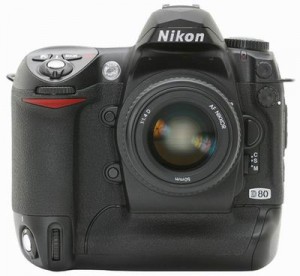In the Netherlands the topic of the last 10 years has been our Mobility. Traffic jams are part of our lives . The time that work meant being stuck in one place for the whole day has changed, at least for a lot of people. I spend three out of five days in other towns. Working either at a customer location or at another site of the firm I work for. And, a lot of people live in one part of the Netherlands and work in another part because if both partners work, you have to balance the difference.
In the last ten years the dutch government has tried to get us out of the car and train and reduce the pressure on our road network.
The last idea is to tax us for the amount of kilometers we make and make it more expensive if we drive in rushhours. They are willing to spend three to four (3-4) billon € (1.000.000.00o € ) for implementing an automated system which checks you and bills you automatic. Maintaining the system is going to cost around 800 million ‘a year. From the government track record for implementing big public systems, you can expect it is going to cost at least 50% more!
Why don’t they just scrap all roadtaxes and put it in the price of petrol. Costs a lot less to implement, and if you drive a lot, you us a lot of fuel, you pay a lot!
US is dumping and burning our aid food
The Mirror reports that the US is dumping and burning food which has been send by the UK, Israel, Spain and Italy. The reason; The food and Drug administration has condemned it as unfit for human consumption because it was not brought in the US in accourdance with the regulation regarding the import and export of meat.
Link
Thank you very much, but please don’t call for help the next time!
Tatung TTAB-B12D
Last time I wrote that I received a Tablet PC. I have to say that I love it.
I got the machine from Germany, so it came with a German version of the Tablet OS. Allthough my German isn’t too bad, I prefere the English and Dutch language version. This meant that I had to do a new install. That took me about an evening with all the patches to be downloaded. After that I installed all the standard stuff I use for my work; Office 2003, Visio, Mind manager, RealPlayer, OneNote plus the extra’s from Microsoft.
The machine comes with a 60GB disk and 512MB memory. The screen is 12.1″ with a max resolution of 1024 x 768. The battery gives you about 3-4 hours of time without AC. Extra’s are fingerprint scanner, firewire, USB and Wireless (b&g). It comes with a keyboard/stand which acts as cover for the Tablet when you don’t use it.
Handwriting recognition works fine for me. The only drawback is that the Dutch language is not supported. As I understand it will take sometime before that is solved. Maybe Vista will be out sooner.
Europe wins the power to jail British citizens
From the Times Online (link)
————–
BRUSSELS has been given the power to compel British courts to fine or imprison people for breaking EU laws, even if the Government and Parliament are opposed.
An unprecedented ruling yesterday by the supreme court in Europe gives Brussels the power to introduce harmonised criminal law across the EU, creating for the first time a body of European criminal law that all member states must adopt. The judgment by the European Court of Justice in Luxembourg was bitterly fought by 11 EU governments, including Britain, and marks a dramatic transfer of power from national capitals to Brussels.
Diplomats said that it was political dynamite in many countries, but the European Commission welcomed the ruling, on a test case about environmental law, as a landmark that sets an important precedent. It gives the Commission the right to decide when breaches of agreed policies are so serious that they should be treated as criminal.
The Commission said that it would use its new powers only in extreme circumstances, but its officials are already talking about introducing EU crimes for overfishing, deliberate polluting, money laundering and price fixing.
EU members have always insisted that the power to set criminal law goes to the heart of national sovereignty and must be decided by national governments and parliaments. The Luxembourg judges ruled, however, that national governments could not exempt EU law from being upheld by criminal sanctions.
José Manuel Barroso, the President of the Commission, said: “This is a watershed decision. It paves the way for more democratic and more efficient lawmaking at EU level.”
A British government official said: “We firmly believed it was inappropriate to harmonise criminal law at EU level. We believe criminal law is a matter for member states co-operating intergovernmentally.” He added that they would consult other countries to consider the options, although the governments have no right of appeal against the court.
Some national government officials said that the issue was so sensitive that EU lawmaking would grind to a halt and member governments would refuse to pass legislation rather than accept harmonisation of criminal law.
One diplomat said: “This stuff is political dynamite in the UK, Holland, Italy, Scandinavia, and Eastern Europe, where they are as keen on their sovereignty as anyone. Imagine how Italians would react if their criminal law was rewritten at EU level. Ironically, it means less will be done at EU level.”
Member states have fiercely guarded their sovereignty over criminal law. The Commission took them to court after they blocked it from introducing harmonised criminal law for pollution. The Court of Justice, which has a record of promoting European integration, ruled in the Commission’s favour, concluding: “The European Community has the power to require the member states to lay down criminal penalties for the purposes of protecting the environment.”
The Court said that although as a general rule criminal law does not fall within EU powers, that “does not prevent the Community legislature . . . from taking measures that relate to the criminal law of member states which it considers necessary”.
The ruling means that the Commission can propose an EU crime that, if passed by the European Parliament and a qualified majority of member states, must be adopted by all member states. This means that Britain could be forced to introduce a crime into its law if enough other members support it. It also gives the Commission the power to compel members to enforce EU criminal law if governments drag their heels or if their courts refuse to sentence people.
Timothy Kirkhope, the Conservative leader in the European Parliament, said: “This appears to be a worrying erosion of British sovereignty. It is a significant transfer of power to the Commission.”
Gerald Barling, QC, a leading European expert at Brick Court Chambers, said: “The ruling is significant. It is the European Commission flexing its muscles.”
The ruling was welcomed by most MEPs, who will now have the powers to pass criminal law and not just civil law. Chris Davies, the leader of the Liberal Democrats in Europe, said: “Europe needs an umpire to ensure fair play between member states and to dismiss the cheats. The European Commission is the only body that comes close to fitting that role.”
The Court ruling did not establish whether Brussels had the right to set criminal sanctions but officials made clear that they intended to do so.
————
I think we have to say ‘NO’ one more time!
Tablet in the house
I have a tablet PC in the house. I finally took the bold step and got a Tatung TTAB B12D.

I have to say; it is great! It is small, sleek, light and works fine. More later.
Nikon rumours about D200/D80
Bitter Fruit
Bitter Fruit
Paul Fusco’s photo essay on the funerals of soldiers killed in Iraq. Produced by Magnum Photos.
Very impressive!
Skype killer application
I found a possible Skype killer application; Gizmo. (http://www.gizmoproject.com/index.html).
Gizmo is a free VOIP application which is based on the open protocol
standard SIP.
Why is this important, isn’t Skype the new standard? No, Skype is the hype and nobody has bothered to look under the bonnet. Skype is a locked down box using a propriety protocol and is dependent on the availability of Skype’s central servers. None of that with a SIP based solution.
Porn makes you go blind
RESEARCHERS have proved what mothers have been telling their sons all along – erotic images can make you go blind.
A study by US psychologists found people shown erotic or gory images could not process what they were seeing immediately afterwards.
Researchers believe that people in traffic don’t see other cars or pedestrians if the have just seen an ” emotionally charged’ scene.
Read more about it here.
Spying on VOIP
Researchers at the George Mason University have developed a methode which makes it possible to listen in on VOIP calls like Skype. Next counterstep will possible be the encryption of VOIP with Public Key Infrastructures (certificates).
Google earth equals Terrorist tool
A terror expert in the Netherlands, from the Clingendael institute, thinks that the Dutch government should do something against tools like Google Earth on the internet. These tools would give would-be terrorists too easy access to vulnerable information like; the Dutch main port Rotterdam, government installations, houses of our royal family, etc, etc.
I remember a documentary on BBC Horizon on Al Qaeda which showed their methods of stacking out possible objects for attacks. It showed how somebody with a video camera, used by any tourist, made a video of the entrance of a subway used by a lot of Americans. It shows that you don’t need tools like Google Earth to get your information. You just go to the spot and look around. Nobody will ask you any questions, nobody will expect anything and the information is up-to-date. Something you can question if you use internet data.
iPod connected in Japanese cars
“We work very closely with automobile manufacturers because your car is a great place to listen to your iPod,” said Steve Jobs, chief executive officer (CEO) of Apple, at a Tokyo news conference.”We’ve worked with a lot or automobile manufacturers and I’m very happy to report that next year, in 2006, over 1 million cars in Japan will be offered either factory-installed or dealer-installed with a way for you to directly connect your iPod right into the stereo system.”
The stereos will be available from Nissan Motor Co., Mazda Motor Corp. and Daihatsu Motor Co. and can be connected to an iPod to allow the driver to both play songs through the car’s audio system and also control the music player from the car stereo.Similar audio systems will be offered in BMW, Mini, Smart and Alfa Romeo vehicles. Car stereos that hook up to an iPod are also available from Alpine Electronics Inc., Clarion Co., Kenwood Corp. and Pioneer Corp., Apple said.
Why on earth would you like to have such a ‘lockin’. I don’t have an iPod, I have an iRiver. So I want an general solution for connecting an external device with a carradio! How about Bluetooth!


